Vocabulary Building Normal Reading Fiction Worksheets for Ages 7-9
8 filtered results
-
From - To
Our "Vocabulary Building Normal Reading Fiction Worksheets for Ages 7-9" offer engaging and educational tools to enhance young readers' word power. Perfectly tailored for children in this critical age group, these worksheets provide captivating stories combined with essential vocabulary exercises. Kids will enjoy the adventure in every reading and simultaneously grasp new words effortlessly. Designed by education experts, these resources nurture reading comprehension and linguistic skills, setting a robust foundation for future learning. Ideal for both classroom and home use, our worksheets ensure that vocabulary building is a fun, interactive, and highly rewarding experience for every young reader.
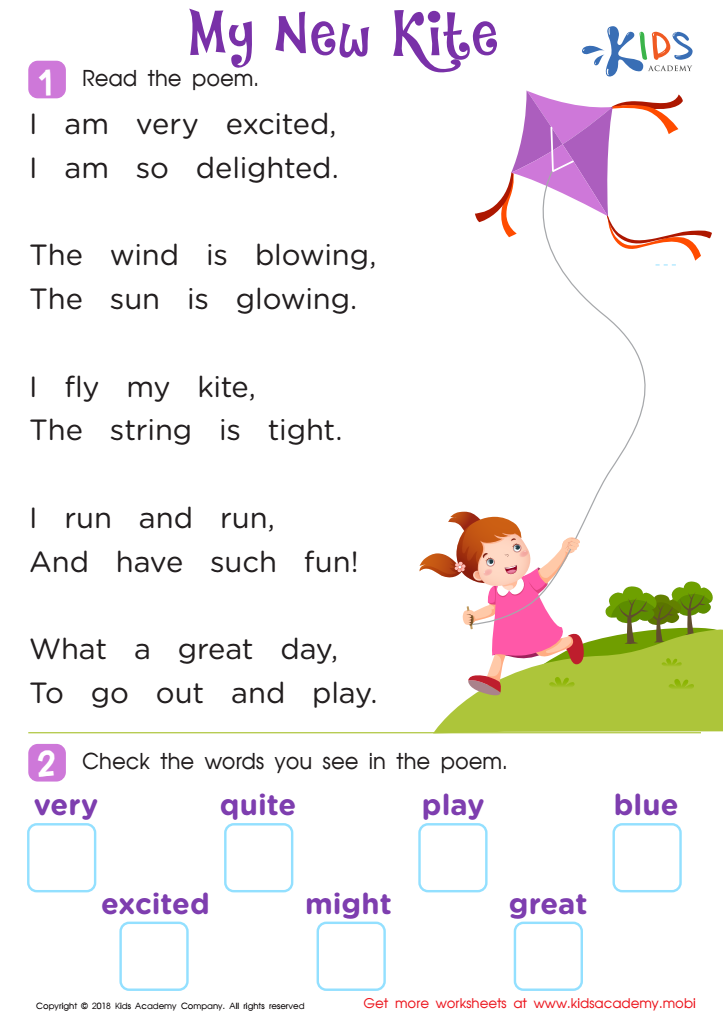

Poem: My New Kite Worksheet
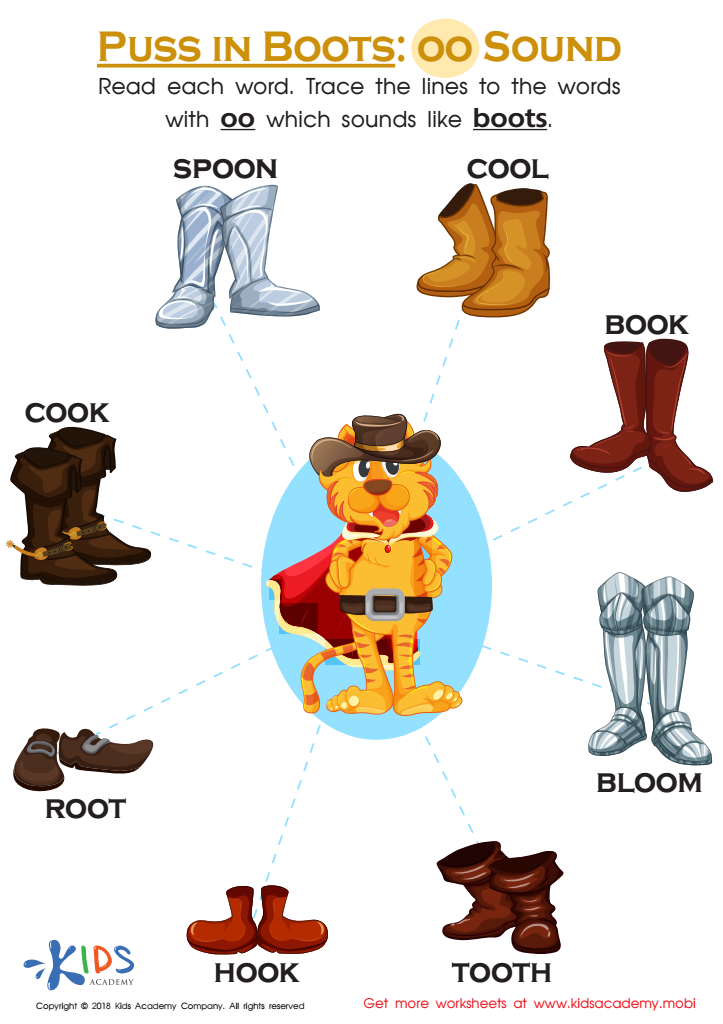

Puss in Boots: OO Sound Worksheet
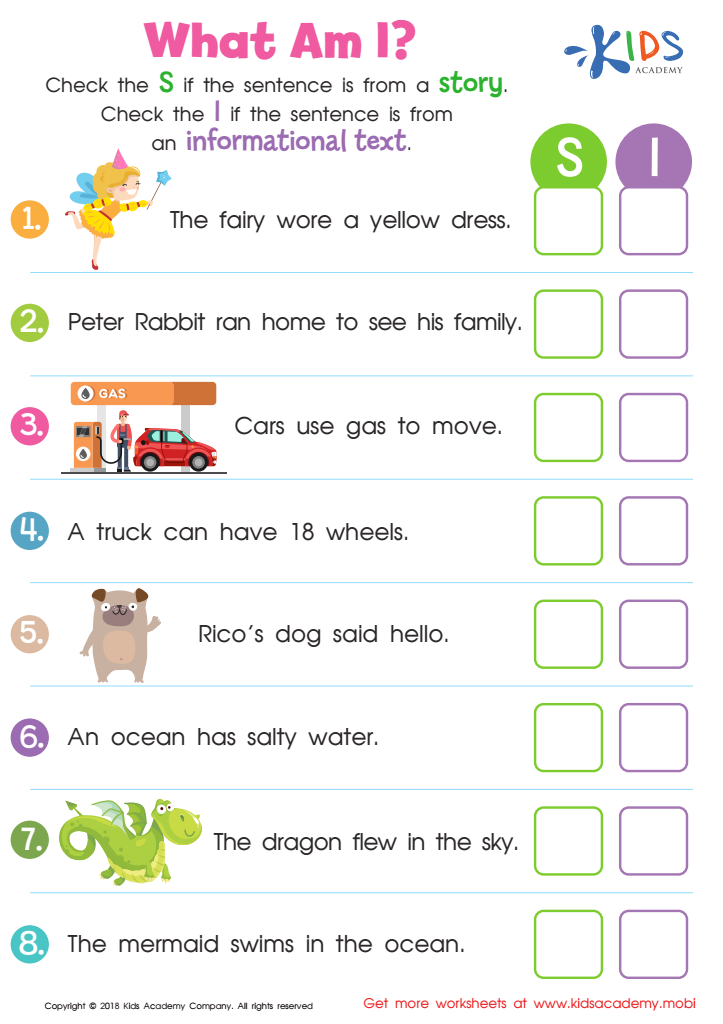

What Am I? Worksheet
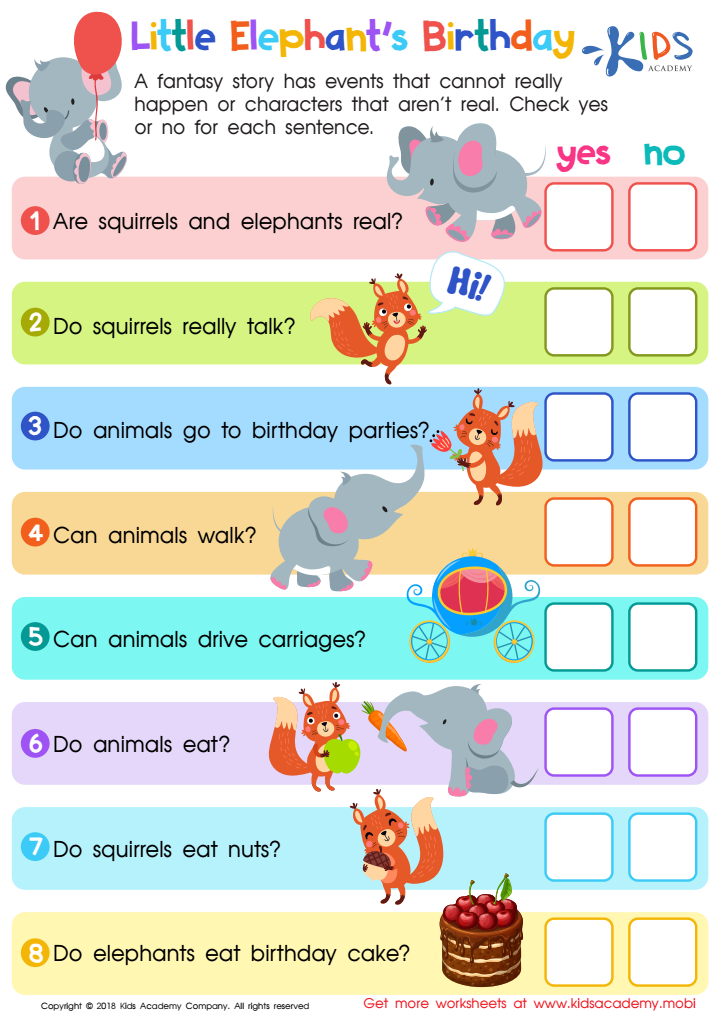

Little Elephant's Birthday Worksheet
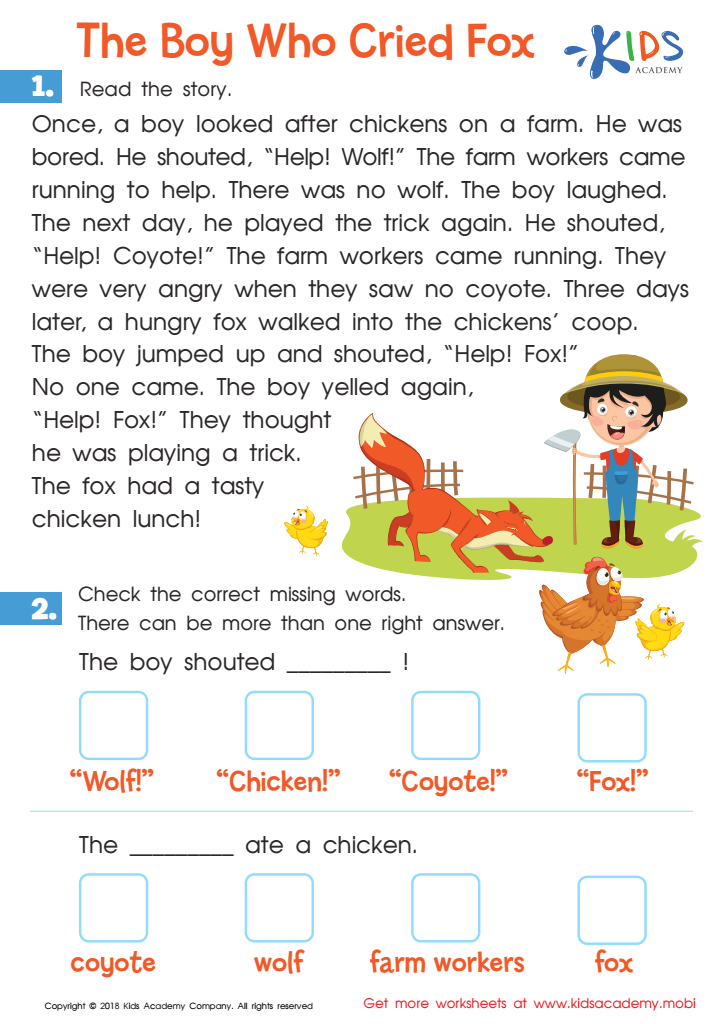

The Boy Who Cried Fox Worksheet
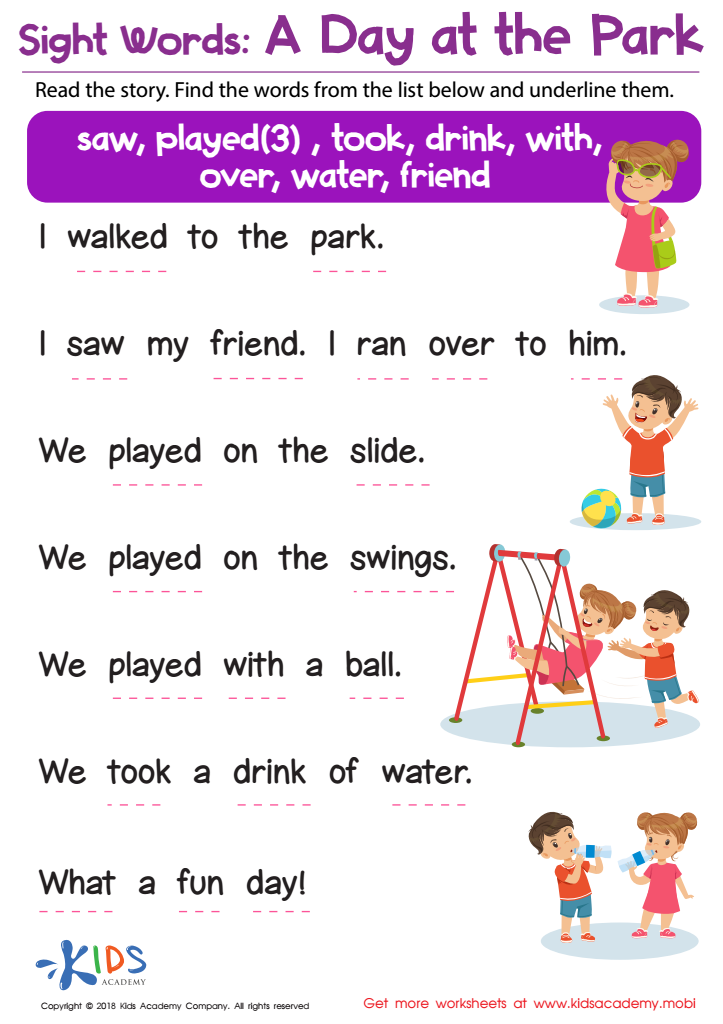

Sight Words: A Day at the Park Worksheet
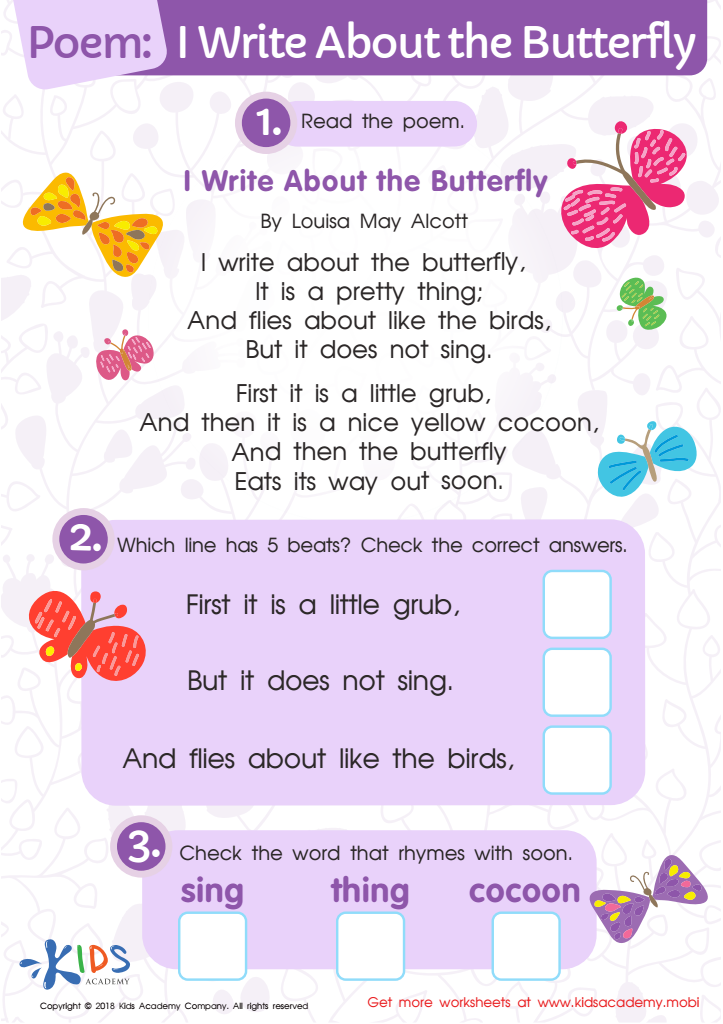

Poem: I Write About The Butterfly Worksheet
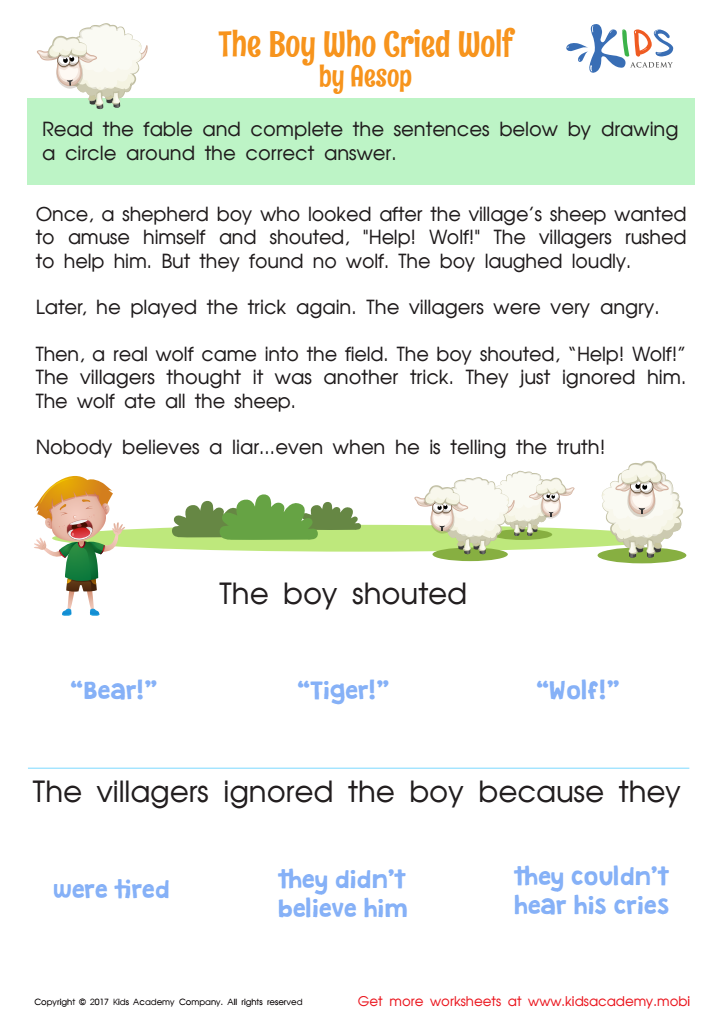

The Boy Who Cried Wolf Worksheet
Vocabulary building through normal reading fiction for ages 7-9 is essential for multiple reasons. At this developmental stage, children's brains are rapidly developing, and their ability to absorb new words is heightened. Introducing fiction during this critical period helps significantly expand a child's vocabulary, which is foundational for effective communication and academic success.
When children read fiction, they encounter new words in context, making it easier for them to grasp meanings, usage, and nuances naturally. This contextual learning enhances comprehension and retention compared to rote memorization. Fiction also sparks imagination and creativity, encouraging children to think beyond their immediate surroundings and relate to various characters and scenarios. This, in turn, can boost empathetic understanding and cognitive skills.
Additionally, an expanded vocabulary is directly linked to improved reading comprehension and performance in other subject areas, including math, science, and social studies. Children who read frequently and widely develop a love for reading that fosters lifelong learning. Moreover, reading together can strengthen the bond between parents and children, offering opportunities for meaningful conversations and shared experiences. In summary, investing in vocabulary building through normal reading fiction at a young age lays a solid foundation for academic excellence and personal growth.

 Assign to My Students
Assign to My Students









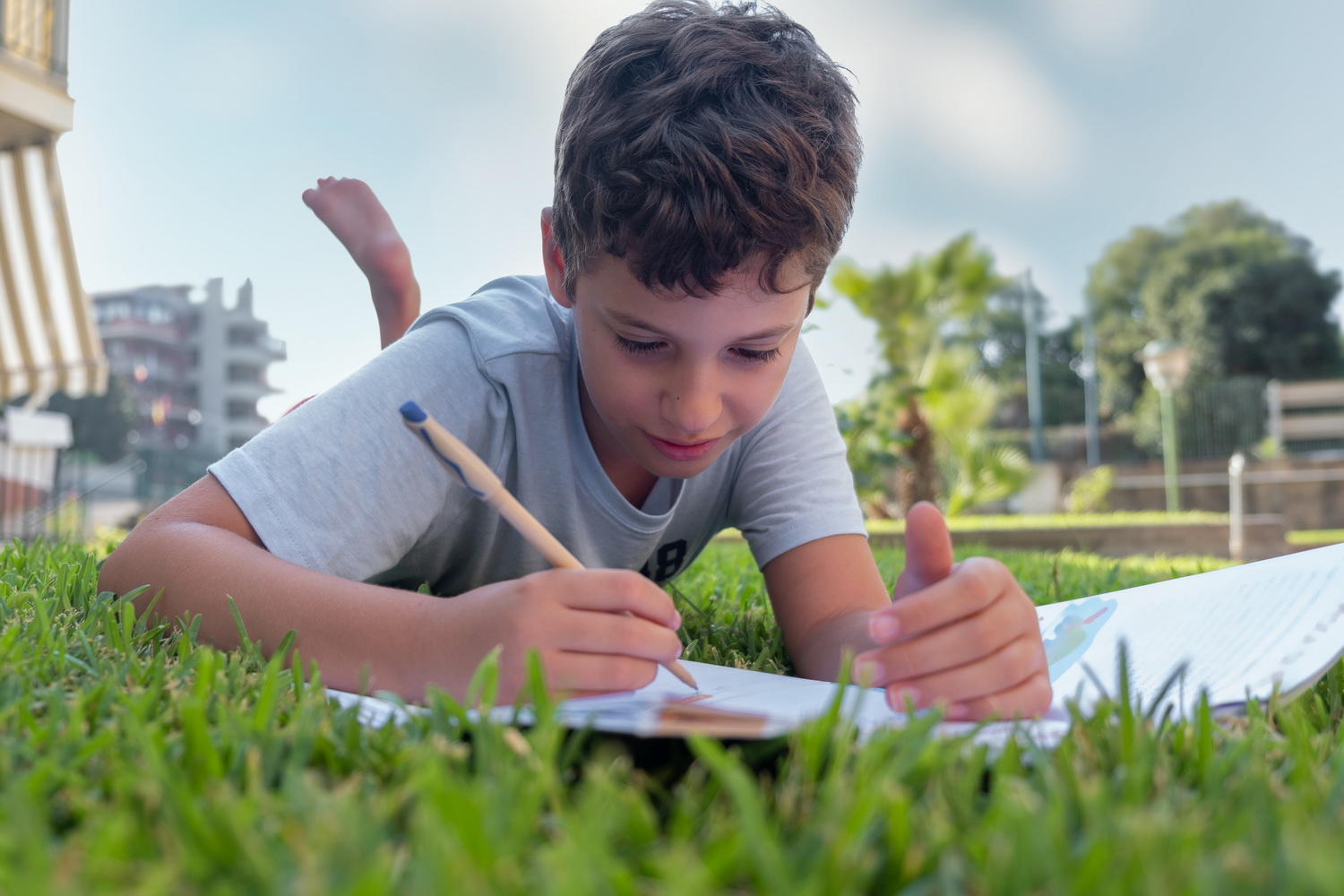
.jpg)









